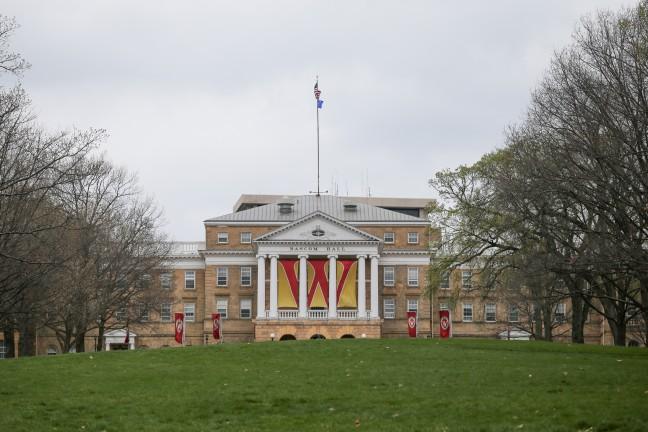
Chair Matt Manes introduces SSFC
More than 20 members of the Collegians for a Constructive Tomorrow student organization stormed out of the Student Activity Center Hearing Room Thursday after student government denied the group funding for the 2011-2012 fiscal year.
Student Services Finance Committee members unanimously voted to deny funding to CFACT, a national non-profit organization that promotes environmental stewardship, because of their failure to return SSFC-owned equipment after being denied funding for the past two years.
According to SSFC Chair Matt Manes, CFACT was given five months to return equipment, which included computers, printers and video cameras, and was told that if they did not, they would be in direct violation of Associated Students of Madison bylaw.
CFACT members expressed the challenges they faced in returning the equipment, admitting that some of the equipment was hard to retrieve because it was out of the state.
“Group members should have known that you don’t take ASM equipment out of the state,” said SSFC Vice Chair Michael Romenesko.
Manes said CFACT did not attempt to track down equipment or pay back its debts until after its status as a registered student organization was revoked by the center for leadership and involvement.
“Not only did we not receive the equipment in the timeline specified, but much of the equipment was damaged,” Manes said.
He added that SSFC could not say for sure whether the vandalism was intentional or not.
CFACT members declined to comment.
After some debate over who exactly the beneficiaries of Wisconsin Student Lobby’s lobbying efforts are, the organization was approved funding for the 2011-2012 fiscal year in a 4-0-2 vote.
Representative Cale Plamann said that he feels WSL is worthy of funding if they aim their lobbying efforts toward issues that specifically affect University of Wisconsin students.
Ian Sundstrom, WSL financial director, said the organization chooses issues that specifically affect UW Students and not the Madison community as a whole.
“We want to focus on issues that will be affecting our students. That’s our mission; that’s our goal,” Sundstrom said.
However, since the future legislative agenda is unknown and it is essentially impossible to know whether or not the group’s lobbying efforts will affect primarily UW students, SSFC approved funding eligibility based on other programs offered by the group.
“Approval of eligibility was based on the advocacy training that [WSL] puts on. They have advocacy workshops that any UW student can request,” Manes said.
Manes said while the known beneficiaries of WSL’s lobbying efforts can be reevaluated in the future, Wisconsin Student Public Interest Research Group’s, who were denied by SSFC on Monday, high-speed rail and fair trade campaigns already show that the group’s primary beneficiaries are not UW students.
“The committee felt that WSL met all of the requirements, and that WISPIRG did not,” Manes said.
WISPIRG now has the option to appeal the decision, according to Manes.
“They have two weeks to file a complaint to appeal a committee decision, at which point the Student Judiciary will rule as to whether or not they want to hear the case,” Manes said.












